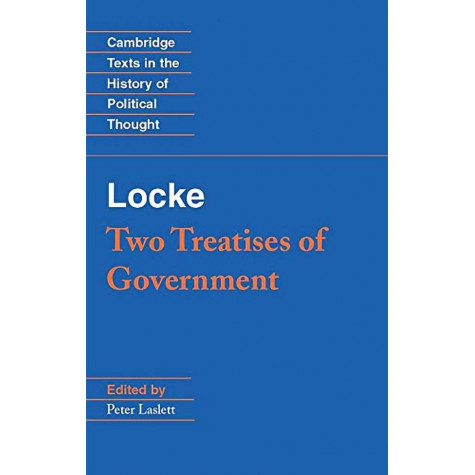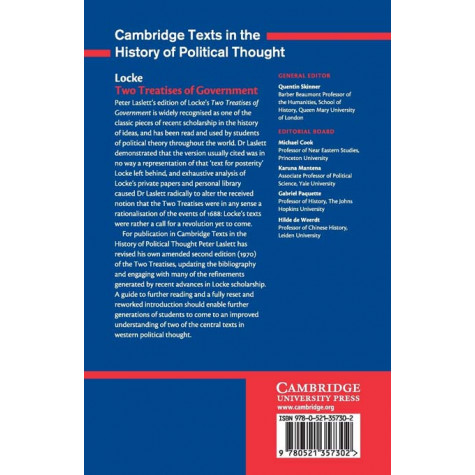Locke: Two Treatises of Government
- Author:
- Pages: 478
- Year: 1988
- Book Code: Paperback
- Availability: In Stock
- Publisher: Cambridge University Press
-
₹1,699.00
Two Treatises of Government is a work of political philosophy published anonymously in 1689 by John Locke. The First Treatise is a scathing criticism of patriarchalism and presents a forceful refutation of Robert Filmer's Patriarcha. Locke proceeds by contesting Filmer's proofs from Scripture and ridicules them as senseless, concluding that no government can be justified by an appeal to the divine right of kings.The Second Treatise describes Locke's ideas for a more civilized society based on natural rights and contract theory. Locke begins by describing the state of nature, much more stable than Thomas Hobbes' state of and ldquo;war of every man against every man, and rdquo; and argues that all men are created equal in the state of nature by God. Then he explains the hypothetical rise of property and civilization, in the process saying that the only legitimate governments are those that have the consent of the people.Locke also defines the state of nature saying that in order to and ldquo;properly understand political power and trace its origins, we must consider the state that all people are in naturally. That is a state of perfect freedom of acting and disposing of their own possessions and persons as they think fit within the bounds of the law of nature. and rdquo; According to Locke, if man in the state of nature be so free and if he be absolute lord of his own person and possessions, equal to the greatest and subject to nobody, he will never part with his freedom. He won't give up this empire to subject himself to the dominion and control of any other power. Though nature has given him such rights, yet he is constantly exposed to the invasion of others. The enjoyment of the property he has in this state is very unsafe, very unsecure. This makes him willing to quit a condition, which, however free, is full of fears and continual dangers. Locke's political philosophy contained in the book provides rich scholarship for common people, particularly the students of politics.
About the Author
Tags: Locke Two Treatises of Government, John Locke, 9780521357302, Cambridge University Press


